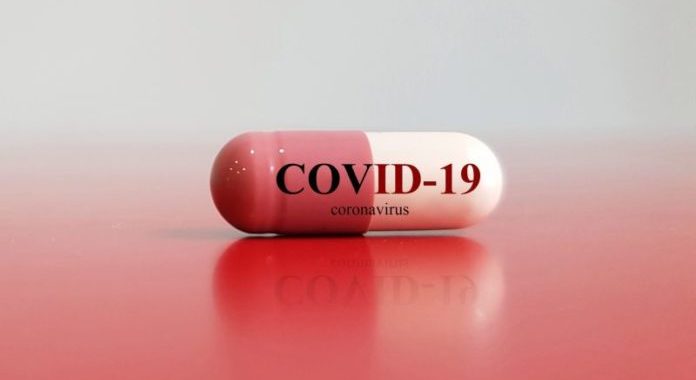| Hydroxychloroquine Drug Interactions & Side Effects |
https://www.drugs.com/sfx/hydroxychloroquine-side-effects.html
Hydroxychloroquine Side Effects
Medically reviewed by Drugs.com. Last updated on Sep 13, 2019.
For the Consumer
Applies to hydroxychloroquine: oral tablet
Side effects requiring immediate medical attention
Along with its needed effects, hydroxychloroquine may cause some unwanted effects. Although not all of these side effects may occur, if they do occur they may need medical attention.
Check with your doctor immediately if any of the following side effects occur while taking hydroxychloroquine:
Incidence not known
- Blistering, peeling, loosening of the skin
- blurred vision or other vision changes
- chest discomfort, pain, or tightness
- cough or hoarseness
- dark urine
- decreased urination
- defective color vision
- diarrhea
- difficulty breathing
- difficulty seeing at night
- dizziness or fainting
- fast, pounding, uneven heartbeat
- feeling that others are watching you or controlling your behavior
- feeling that others can hear your thoughts
- feeling, seeing, or hearing things that are not there
- fever with or without chills
- general feeling of tiredness or weakness
- headache
- inability to move the eyes
- increased blinking or spasms of the eyelid
- joint or muscle pain
- large, hive-like swelling on the face, eyelids, lips, tongue, throat, hands, legs, feet, and sex organs
- loss of hearing
- lower back or side pain
- noisy breathing
- painful or difficult urination
- red irritated eyes
- red skin lesions, often with a purple center
- severe mood or mental changes
- sore throat sores, ulcers, or white spots on the lips or in the mouth
- sticking out of the tongue
- stomach pain
- swelling of the feet or lower legs
- swollen or painful glands
- trouble with breathing, speaking, or swallowing
- uncontrolled twisting movements of the neck, trunk, arms, or legs
- unusual behavior
- unusual bleeding or bruising
- unusual facial expressions
- unusual tiredness or weakness
- yellow eyes or skin
- Symptoms of overdose
- Drowsiness
- dry mouth
- increased thirst
- loss of appetite
- mood changes
- no pulse or blood pressure
- numbness or tingling in the hands, feet, or lips
- unconsciousness
Side effects not requiring immediate medical attention
Some side effects of hydroxychloroquine may occur that usually do not need medical attention. These side effects may go away during treatment as your body adjusts to the medicine. Also, your health care professional may be able to tell you about ways to prevent or reduce some of these side effects.
Check with your health care professional if any of the following side effects continue or are bothersome or if you have any questions about them:
Incidence not known
- Continuing ringing or buzzing or other unexplained noise in the ears
- feeling of constant movement of self or surroundings
- irritability
- nausea
- nervousness
- nightmares
- sensation of spinning
- shakiness and unsteady walk
- uncontrolled eye movements
- unsteadiness, trembling, or other problems with muscle control or coordination
- vomiting
- For Healthcare Professionals
- Applies to hydroxychloroquine: compounding powder, oral tablet
Cardiovascular
Frequency not reported: Cardiomyopathy (can result in fatal cardiac failure), biventricular hypertrophy[Ref]
Dermatologic
Common (1% to 10%): Rash, pruritus
Uncommon (0.1% to 1%): Pigmentary changes in skin and mucous membranes, bleaching of hair, alopecia
Frequency not reported: Urticaria, angioedem
-Pigmentary changes in skin and mucous membranes, bleaching of hair, and alopecia are usually reversible when therapy is discontinued.
-AGEP should be distinguished from psoriasis, although this drug may precipitate attacks of psoriasis; it may be associated with fever and hyperleukocytosis[Ref]
Gastrointestinal
Very common (10% or more): Abdominal pain, nausea
Common (1% to 10%): Diarrhea, vomiting[Ref]
Hematologic
Frequency not reported: Bone-marrow depression, anemia, aplastic anemia, agranulocytosis, leucopenia, thrombocytopenia[R
Hepatic
Uncommon (0.1% to 1%): Abnormal liver function tests
Frequency not reported: Fulminant hepatic failure[Ref]
Hypersensitivity
Frequency not reported: Allergic reactions (urticaria, angioedema, bronchospasm), hypersensitivity myocarditis[Ref]
Metabolic
Common (1% to 10%): Anorexia
Frequency not reported: Hypoglycemia, exacerbation or precipitation of porphyria[Ref]
Musculoskeletal
Myopathy may be reversible after therapy discontinuation, but recovery may take many months.[Ref]
Uncommon (0.1% to 1%): Sensorimotor disorders
Frequency not reported: Skeletal muscle myopathy or neuromyopathy (leading to progressive weakness and atrophy of proximal muscle groups), depression of tendon reflexes and abnormal nerve conduction studies[Ref]
Nervous system
Very common (10% or more): Headache
Uncommon (0.1% to 1%): Dizziness
Frequency not reported: Seizure, vertigo, nerve deafness, ataxia[Ref]
Ocular
-Blurring of vision is due to a disturbance of accommodation which is dose dependent and reversible.
–Retinopathy is uncommon if the recommended daily dose is not exceeded. It is usually reversible if therapy is discontinued. If allowed to develop, there may be a risk of progression even after treatment withdrawal.
-Patients with retinal changes may be asymptomatic initially, or may have scotomatous vision with paracentral, pericentral ring types, temporal scotomas, and abnormal color vision.
-Corneal changes including edema and opacities can be symptomless or may cause disturbances such as haloes, blurring of vision or photophobia. They may be transient and are reversible when therapy is discontinued.
-Maculopathies and macular degeneration can occur from 3 months to several years of exposure to this drug and may be irreversible.[Ref]
Common (1% to 10%): Blurred vision
Uncommon (0.1% to 1%): Retinopathy (with changes in pigmentation and visual field defects), corneal changes haloes (e.g., blurring of vision, photophobia)
Frequency not reported: Maculopathies and macular degeneration (may be irreversible), extra-ocular muscle palsies (reversible), nystagmus[Ref]
Other
Uncommon (0.1% to 1%): Tinnitus
Frequency not reported: Hearing loss[Ref]
Psychiatric
Common (1% to 10%): Affect liability
Uncommon (0.1% to 1%): Nervousness
Frequency not reported: Psychosis, suicidal behavior[Ref]
Respiratory
Frequency not reported: Bronchospasm




